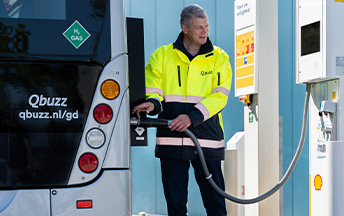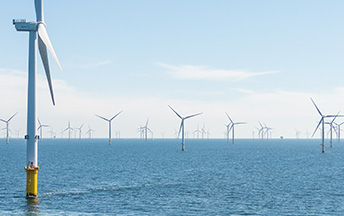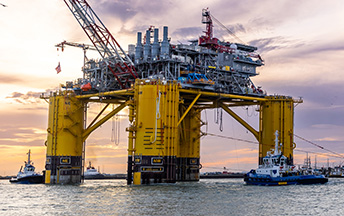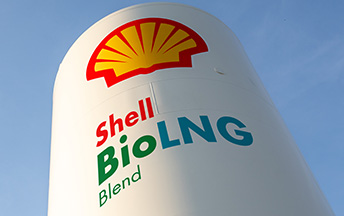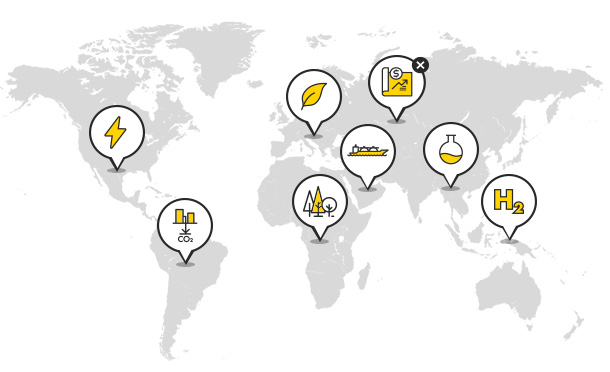Conventional fuels
Conventional oil and gas supply and sectors
Oil and gas currently meet more than half of the world’s energy needs, according to the International Energy Agency (IEA). The volatility caused by Russia’s war in Ukraine has highlighted the need for a global supply of secure and affordable energy. We continue to supply the conventional fuels needed to help meet this demand, including natural gas and traditional fuels (such as fuel oil, gasoline, diesel and jet fuel), while lowering emissions from our own operations.
Natural gas
In 2022, as one of the world's largest suppliers of liquefied natural gas (LNG), we shipped natural gas to where it was needed most. We delivered 194 cargoes of LNG to Europe – almost five times our usual average. In total, we sold 66 million tonnes of LNG in 2022 compared with 64.2 million tonnes in 2021.
LNG plays an important role in enabling countries to replace coal-fired power generation with a lower-carbon alternative. For example, combined-cycle gas turbines emit about 50% less CO2 per unit of electricity generated than an average coal-fired power plant, according to the IEA. LNG also helps to decarbonise shipping operations and commercial road transport. In 2022, we completed more than 250 ship-to-ship LNG bunkering operations. We provide LNG to ships at 15 ports in 10 countries. We also expanded our LNG refuelling network to more than 60 operated sites, bringing the number of sites where Shell customers can access LNG in Europe to more than 160.
Shell was selected as a partner in two projects in Qatar: the expansion of the North Field East, which is the largest LNG project in the world, and the North Field South project [A]. By using carbon capture and storage, these landmark projects will help provide LNG with a lower carbon footprint to our customers. Shell’s share of these two projects will be around 3.5 million tonnes per annum (mtpa) of LNG when production starts later in the decade.
In 2022, we also took final investment decisions to develop offshore gas projects in Malaysia, the UK and Australia. One of them, the Rosmari-Marjoram project, situated 220 kilometres off the coast of Malaysia, will mainly be powered by renewable energy.
Traditional fuels
From exploration to refining and distribution, traditional fuels continue to play a key role in the energy system. We estimate that our oil production peaked in 2019. In 2022, our crude oil and natural gas liquids production available for sale was 13% lower than in the previous year. This larger than usual decline was mainly driven by portfolio changes, including the sale of our Permian business in late 2021 and the derecognition of volumes related to Sakhalin in Russia.
In 2022, we continued the transformation of our integrated refineries into Energy and Chemicals Parks. This involves developing new facilities and converting or dismantling existing units. We plan to process less crude oil and use more renewable and recycled feedstocks such as hydrogen, biofuels and plastic waste. In the USA, we completed the sale of our Mobile refinery in Alabama and of our interest in the Deer Park refinery in Texas.
We have implemented a variety of measures to reduce the energy use and increase the energy efficiency of our operations, with estimated total savings of around 1,155 million kilowatt hours (kWh). Please refer to the "Our journey to net zero" section in our Annual Report and Accounts 2022 for examples of the measures we took in 2022.
Our conventional fuels activities are part of our Upstream, Marketing, Integrated Gas and Chemicals and Products business segments.
[A] Shell participation in the North Field South project remains subject to clearance of remaining customary conditions precedent.






